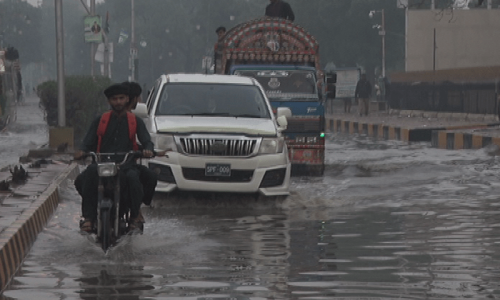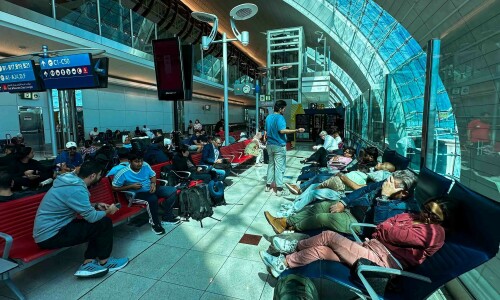LAWYERS, generally, are not liked. Whether justified or not, this phenomenon is not unique to Pakistan. Shakespeare in Henry VI, for instance, has provided the popular culture with his famous line, “The first thing we do, let’s kill all the lawyers”. This line spoken in jest by Dick the Butcher, a ruffian character in the play, implies in the play’s context that the killing of the lawyers would smoothen the way for installing the rebel, Jack Cade, as king. This character is not likable, and his design is gruesome. But many have expropriated the line to express their frustrations with lawyers.
There are three categories of egregious conduct identified in this article that a few lawyers engage in, which makes them unlikeable; it is particularly the conduct in the third category, however, that implicates the entire legal profession. Under the first category, a few lawyers may purportedly serve their clients by violating their ethical duties. In their quest for winning cases, for instance, these lawyers may deliberately misrepresent the facts and law. They may coach, or worse, manufacture witnesses; or they may fabricate evidence. The lawyers here transgress the ethical boundaries by distorting the level-playing field, thereby undermining the overall scheme of justice.
The second category includes conduct through which lawyers benefit themselves at the expense of their client. A lawyer in this category may deliberately not provide adequate representation to their client. He may file a suit, for instance, but not appear for hearings. Or may appear for hearings, but not zealously pursue the case, either because of lack of preparation, or worse, due to an arrangement with the other party. Several lawyers indulge in this category of unethical behaviour collectively when they call a strike and shut down courts, pursuing their own ends instead of those of their clients.
In the third category falls conduct that has an impact not only on the judicial system, but also on avenues not directly connected to the court. A few lawyers, for instance, may use their status as lawyers to garner undue benefits from, or cause undue harm to, society at large. The attack on a hospital in Lahore by a mob of lawyers last year was an example. A few lawyers’ encroachment upon public land in and around district courts in Islamabad is another. This encroachment is ongoing and continues to cause difficulties to the residents and businesses in Sector F-8.
The deeds of a few unfairly tarnish the whole fraternity.
In the midst of Islamabad, a city that portrays some semblance of order, is a disorderly labyrinth housing the city’s district courts. In Sector F-8, sprawling around the dilapidated courts, are the many chambers of lawyers, some of which have been constructed on land encroached upon from the public, including green belts, footpaths and a football ground. The encroachment first began in 2013. The Capital Development Authority (CDA) at the time issued notices, demolished a few constructions, but the district court granted a stay.
In 2017, a few lawyers sought more public land. This time they faced heightened resistance. It came not from the courts that sat amidst them, at least not initially, but from the public, the residents of sector F-8, who witnessed the public land receding as the chambers continued to engulf the land around the district courts.
In February 2018, an activist Supreme Court stepped in. Reports from the CDA were sought. After hearing the matter through the year, the matter was passed on to the Islamabad High Court in December 2018. In the same month, however, the CDA received the blessing of the district judiciary and finally conducted an anti-encroachment operation, knocking down a few more chambers.
But a few lawyers would not have it. A strike ensued that lasted for 40 days. During that strike it was reported that, at one point, around 20 judges of the district courts were detained in their courtrooms. Infuriated with the protests, around 60 judges reportedly decided to discontinue proceedings in their courts. The litigants were made to wait for the lawyers’ egos to deflate before their cases could be heard. The harbingers of the rule of law — the officers of the court who make a living by understanding and enforcing the dictates of law — appeared to have disregarded that very law. Meanwhile, the chambers, built on the encroached land, continue to exist to date.
While many lawyers do put in their honest day’s work on behalf of their clients and abide by the law, the display of extreme callousness towards their ethical duties and the law by a few manages to, at times, unfairly tarnish the entire fraternity. It also sends a dangerous message that a few lawyers, through collective coercion, may have attained a status where the law applies differently to them. This, in turn, results in the hardening of the public’s, mostly negative, perception of lawyers.
The writer is a litigator based in Islamabad.
Published in Dawn, August 13th, 2020













































